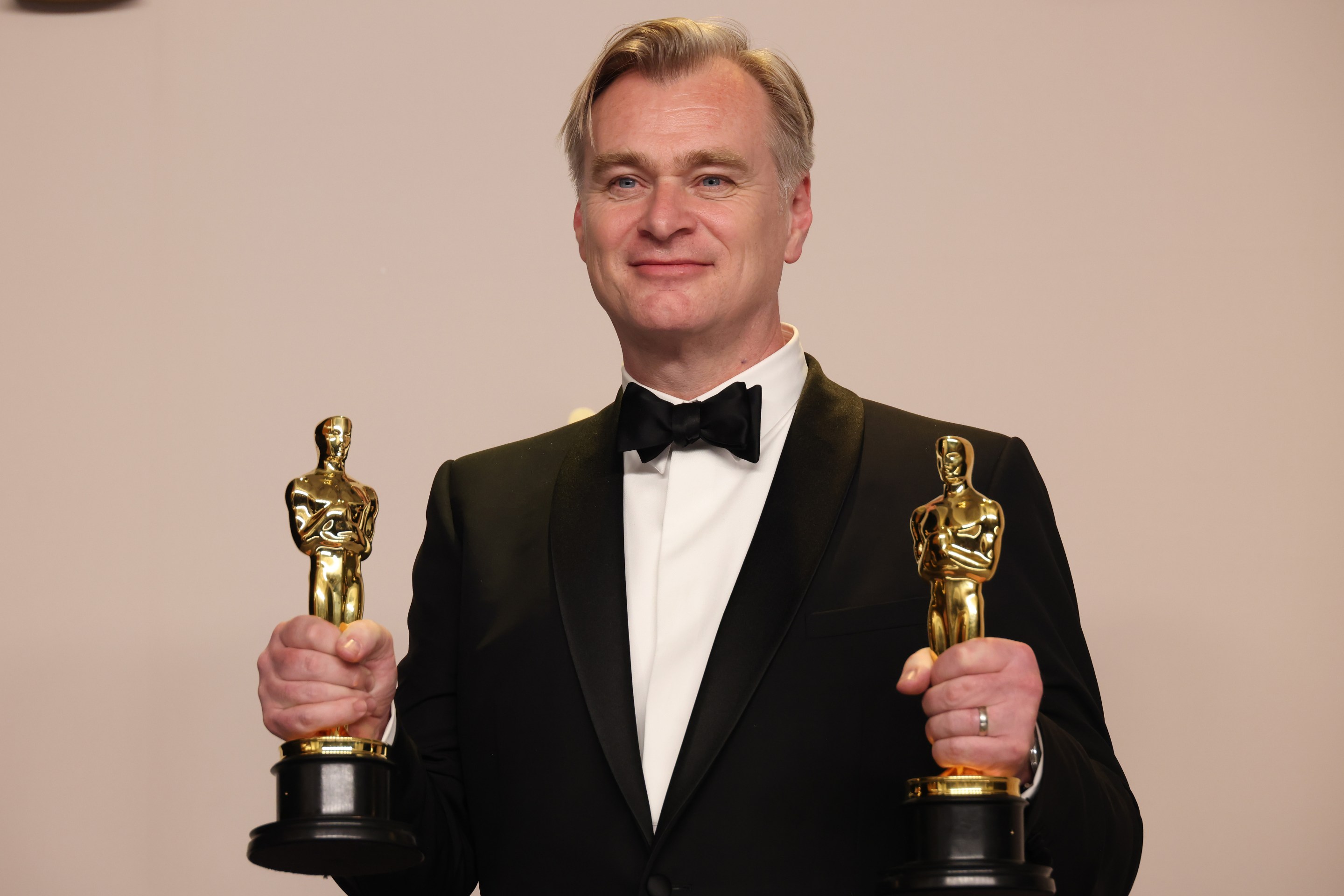Sunday marked the 96th annual Academy Awards, a show that provided solid entertainment in place of any actual spectacle—that is, unless you were just super pumped after watching Ryan Gosling perform "I'm Just Ken" from the Barbie movie, with all of the pomp and circumstance of Gentlemen Prefer Blondes. Maybe you were the world's biggest combination Twins/Batman fan, just dying over that Arnold Schwarzenegger and Danny DeVito reunion (with guest shot of Michael Keaton). If you're like me, you can yell about the idiot voters that denied queen Lily Gladstone her Oscar (happy for you though, Emma Stone). Outside of that, the Oscars put on a highly serviceable and still too-long program, that was funny at moments, cringey at others, and easy to digest and move on.
If last night's show will be remembered for anything, most likely it'll be as the moment when Christopher Nolan was officially coronated as the king of Hollywood. This has been building for some time to anyone paying attention. The man who made his bones on solidly entertaining, if sometimes gimmicky, indie and mid-budget films parlayed his early success into making the definitive Batman trilogy (like it or not), and has spent the last decade and a half as the king of the original blockbuster (like that or not), following in the footsteps of Steven Spielberg and James Cameron. But last night made this idea concrete, not merely because Nolan's latest, Oppenheimer, won him a best director Oscar, but because it damn near swept all the major categories. That's a feat movies rarely accomplish now, and which calls to mind a similar moment for Spielberg in 1994, the year Schindler's List and Jurassic Park won a combined 10 awards. It's not an accident that Spielberg was there to greet Nolan with the statue for best director on Sunday.
On a number of levels, this bums me out. I like Nolan. In fact, that is the best thing I can say about him. I always LIKE his movies. The things most people tend to love about his movies are the things I chafe at. And the things that annoy most people about them, I tend to appreciate. His movies are convoluted for the sake of it. This can be annoying when he does it while still pretending there's a logic to be found, like in Inception, but it can be hilarious when he does it just to be purposefully inscrutable, like in Tenet. Despite the massive budgets, A-list actors, and the dream team of specialists at every position, his movies aren't as imaginative or detailed as you'd think—the planets of Interstellar look like a half-thought-out video game. And sure, walking on the ceiling in Inception is cool and all, but for a world made out of dreams, it sure is lucid.
Nolan's films tend to be a lot like the man himself: a little too staid, too put-together, and self-serious. You know there was no way he was going to mention "Barbenheimer" during any of his acceptance speeches, just as he refused to engage with it in any genuine way during Oppenheimer's press run. And yet, the silliness of all that turned his movie about a nuclear physicist making sick bombs into a can't-miss event, and certainly played a role in last night's sweep. Would Kubrick have done it? Probably not, but he's also no Kubrick.
Oppenheimer in some ways was Nolan's first true attempt at Oscar bait. A movie that could've been made just as well with a much smaller budget, but even in this seemingly small story, Nolan's penchant for blowing things out couldn't be denied. In some respects, it's admirable. The insistence on these big IMAX cameras, recreations of atom bomb explosions, over-the-top timeline editing, and sweeping score all resolve into the idea that even a personal, character-driven story is, to Nolan, deserving of the Marvel treatment. I enjoyed the movie, mostly because of Cillian Murphy's performance as a genius physicist who can't stop getting laid and can't help running into Communists. The big explosion was nice, too, I guess.
But I will give Nolan this: Movies should be events more often, whether they are about dream thieves or time spies or horny theoretical physicists. In the post-Spielberg world of cinema, there was an explosion of family-based sci-fi and adventure stories, all about wonder and coming of age and all that other nonsense. What will Nolan's reign over Hollywood create? A lot more movies about the machinations of time? Or just a general desire to take life and make it as big and loud and expensive as possible? If this means we get to spend a few more afternoons per year in an IMAX theater getting our eardrums blown out, I guess that's not the worst thing.






